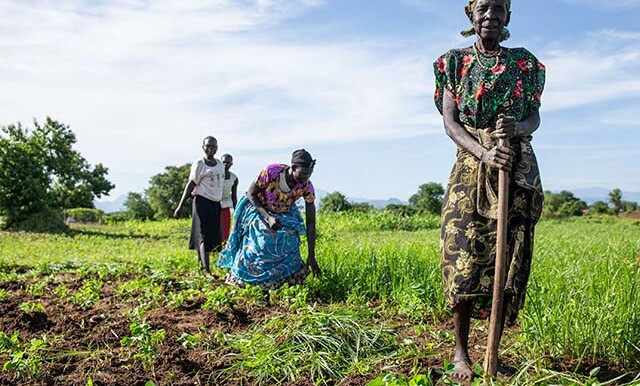Farmers in Warrap State have blamed the poor agricultural harvests in 2022 on climatic change and resultant floods.
Last year, the national ministry of humanitarian affairs and disaster management announced that South Sudan was hit by floods that destroyed crops, killed livestock, and displaced thousands of households across large swaths of the country.
Some farmers in Warrap State sounded out by Radio Tamazuj said they realized poor harvests in 2022 to the point of abandoning farming.
Joseph Ngong Ngong, a farmer in Kuac North Payam, Gogrial West County says his nearly 45 acres only produced 6 sacks of sorghum and 1 sack of groundnuts.
“My farm is at Awaliet in Mibior village and in 2022 my 28 acres were terribly destroyed by floods and I only harvested 6 sacks of sorghum from 16 acres and one sack of groundnuts,” he lamented. “It cost me SSP 686,000 to clear the land, weed the crops, winnow the sorghum, and shell the groundnuts.”
Ngong however says he had a bumper harvest the previous year in 2021.
“2021 was good and I harvested 96 sacks of groundnuts from 28 acres, 16 sacks of sorghum, and 6 sacks of sesame from 16 acres because I intercropped sesame with sorghum,” he said.
Ngong says he will not cultivate this year because his crops were destroyed and he has no capital to buy inputs and contract labor and appealed to the government and humanitarian organizations to support farmers with seeds and loans.
“The ministry of agriculture should connect us with banks who will give farmers loans which can be guaranteed using assets like plots of land so that we can finance agricultural activities,” he said.
Meanwhile, Chol Nyikuany, another farmer, says he made losses due to last year’s poor harvest and is worried about how he will pay school fees for his children.
“I am a farmer in Aluicluic near Mayen Gumel and I have a 5-acre farm in which I used to grow sorghum and groundnuts but the 2022 harvest was very bad. I only harvested one bag of sorghum and five sacks of groundnuts and it cost me SSP 385,000,” he says. “In 2021 I had a better harvest and was able to pay school fees for my children and I bought 5 cows and 7 goats after I took my surplus harvest to Aneet market.”
Another farmer, Nyikuany also says he cannot cultivate this year unless he sells some of his assets to support farming activities.
On his part, Peter Madut Amet, the director general in the state agriculture ministry, says his department has been coordinating efforts to get partners to support farmers.
“We have numerous partners that are supporting farmers and last week we held a food security and livelihood cluster meeting with partners and discussed the possibility of supporting farmers whose farms were devastated by floods,” he reveals. “Organizations like World Vision are doing this now and there is an ongoing registration of farmers in the counties so that youth, women, and farmers’ unions with ox-plows are supported. It will be a cost-sharing program and is not free.”
He says the government and its partners are going to introduce fast-growing crop varieties because of climatic change.
“Rains started late in June last year and some traditional seeds need to be cultivated early in April or May,” he says. “Rice can also do well in Warrap State and was piloted in Tonj South and Twic counties and it worked well so we will introduce it to other counties too.”




